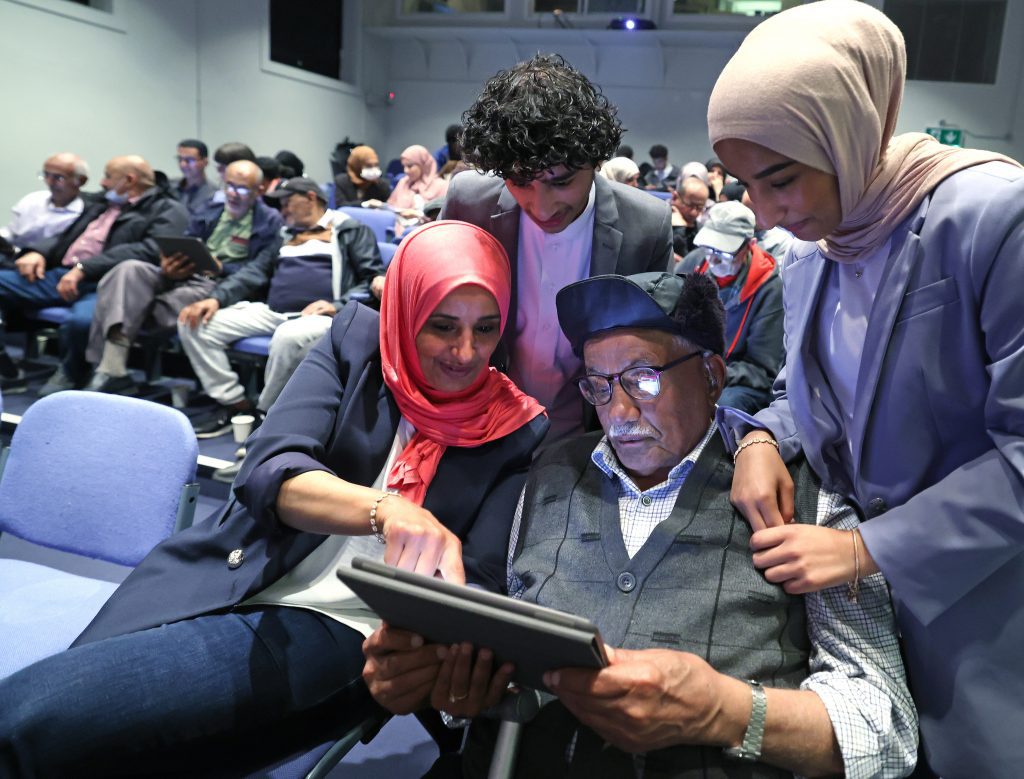
RHS Bridgewater, a champion garden for health and collaboration
I grew up in Norfolk, in the rolling (ok, steam-rolled) countryside, surrounded on all sides by green and brown… but I dreamt of living in a city. I always had a craving for traffic noise and the buzz of urban life. When I stayed in a family friend’s city centre house the street’s orange glow and sweeping car lights sent me to a happier sleep than the rustle of leaves and reflection of moonlight on the stream.
Now I live in central Manchester, with all its football chants, hen party laughs and half-hourly sirens, and I love it. But for all its amazing music, art, and food, Manchester is sadly lacking in inner-city parks, and I’m starting to crave green spaces. I’ve had to make it a conscious decision to get out of town every now and then, to get on a train and go for a walk in the hills. It only takes a couple of hours in the fresh air and I can feel my shoulders dropping, my pace slowing, and my foggy brain clearing.
Numerous studies (summarised in a World Health Organisation report in 2016) have concluded that there are clear positive links between urban green space and physical and mental health, including lowering levels of stress, anxiety, and depression. There is also evidence to suggest that urban green spaces positively impact quality of sleep, social behaviours, and memory among many other factors.
In a time where nearly 65% of people say they’ve experienced mental health problems, and more than 4 in 10 say they’ve experienced depression (Mental Health Foundation, 2017) it’s more important than ever to remember the impact of something as simple as green space.
However, it’s one thing to have access to, or be able to see parks, rivers, and trees, and quite another to be an active part in creating and maintaining it.
Research from charities like MIND has shown that the act of gardening itself can be transformative. From the physical side (squatting, lifting, pushing, digging, and walking) to the sense of nurturing a living thing, to the gentle interaction with other gardeners, MIND’s Ecominds scheme has seen volunteers lose weight, combat addiction, and reduce anxiety to name just a few outcomes.
Not far from me, an extensive project is underway in Salford to revive and further develop a once grand garden on the Worsley New Hall estate. One of the largest gardening projects in Europe, and one of the most impactful in the Royal Horticultural Society’s 215-year history, the project is being led by award-winning Landscape Architect Tom Stuart-Smith.
RHS Bridgewater is an extensive development, which will include a restoration of the Walled Kitchen Garden, a Learning Centre for schools, and perhaps most significantly a Wellbeing Garden. Horticultural Projects Manager Ben Brace calls the Wellbeing Garden “a sanctuary that offers space to grow, space to reflect and space to meet others and get moving”.

Before consulting with more than 20 organisations over six months, including health and social care providers and charities, Brace says that he and the RHS Bridgewater team were initially worried that it would be hard to cater for a wide range of conditions (both physical and mental) in a single garden, but it became apparent that “people’s needs are essentially similar”. Three distinct spaces are being created – Reflective, Growing, Meeting and Moving– among a series of circular paths to invite exploration, encourage exercise, and provide positive distractions.
Collaboration with local organisations and members of the public is a key part of RHS Bridgewater, from these initial consultations to the physical development of the spaces, to the use of the completed gardens. RHS Programme Director Anna da Silva says that they’re “100% focused on maximising the benefits for local communities”.
The project is creating jobs (140 in the garden alone), alongside training and volunteering opportunities, community gardening projects designed with and for locals, and free educational resources for nearby schoolchildren (7,000 each year).
What’s more, partnerships with local universities, GPs, hospitals, social services, and VCSE (voluntary, community, and social enterprise) organisations provide the opportunity to conduct measurable research into the impact of the project on people’s wellbeing.
In April RHS Bridgewater kicked off their innovative ‘social prescribing’ project, which over the course of a year will see up to 75 individuals (referred by their GPs) improve their health through supported volunteering placements on site, including developing the Wellbeing Garden itself. In true alliance, the project staff and partners have received training from leading Horticultural Therapy charity Thrive. The University of Salford will evaluate the effects of gardening on the participants’ physical and mental health and wellbeing, the first research of its kind in the Salford Area.
Recent findings from the University of East Anglia have shown that “exposure to greenspace significantly reduces people’s levels of salivary cortisol – a physiological marker of stress…. In the UK, 11.7 million working days are lost annually due to stress, depression or anxiety.” The report also outlines the reduced risks of type II diabetes, cardiovascular disease, and high blood pressure associated with “exposure to greenspace”.
In a move that cements their dedication to their neighbours, the RHS Bridgewater team have already funded 15 community green space projects in collaboration with Salford CVS and Salford Clinical Commissioning Group to promote health and wellbeing, including a brand new garden at Veterans’ Garage, a social hub for veterans to alleviate social isolation.
RHS Bridgewater isn’t open to the public until 2020, but a recently-announced programme of behind the scenes tours are now available to book.
Photos by RHS Bridgewater Team.


